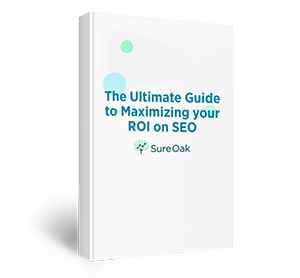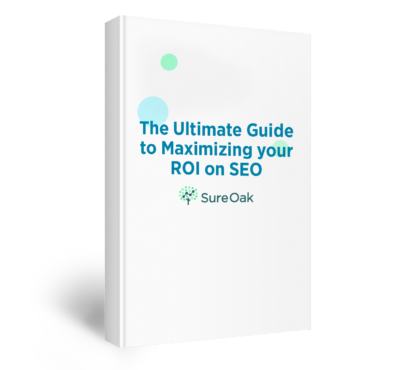For as long as link building has been a part of SEO, people have been predicting its demise. We’ve seen a number of flare-ups of this concern over the years, with the most recent coming in November last year, when Google’s John Mueller suggested in an interview that link building might be less relevant to Google’s search ranking algorithm in the coming years.
So: is link building still relevant to SEO in 2024?
The answer—surprise surprise—is yes. Year after year, businesses continue to invest heavily in link building, for one simple reason: it remains among the most effective techniques there is to drive traffic and spur growth. Despite the doomsayers, link building has remained an integral component of any marketing strategy and will remain so for years to come.
The Importance of Link Building in SEO
Back in the ’90s, the focus was all on keywords. Competition took the form of cramming as many keywords as humanly possible on your page, in the hopes that one of them would snag the consumer or reader you were after.
That changed significantly with the rise of Google, which took a much deeper, more intensive approach to determining which links to surface where. Once it became clear that relevant backlinks were the secret to success on Google, marketers and SEO professionals quickly took note, creating the SEO environment we all live in today.
So a better question to ask than “is link building still relevant to SEO” might be: why is link building still important to SEO? Below, you’ll find a number of answers to that question.
Helps Organic Rankings
It is a well-established fact that most people rarely move past the first page of search results on Google. Average people trust Google; they understand intuitively that if a link ranks highly in search results, it’s probably more trustworthy and relevant to their needs. And it’s here that the utility of link building is clearest—because when relevant sites link to your content, it almost invariably improves your search ranking. If a consumer is searching for lawn mowers, you can be absolutely sure they’ll be more likely to come across and purchase one listed on the first page of search rankings, as opposed to the third.
Increases Brand Authority
The specifics of Google’s search algorithm will always be a mystery to marketers, and it’s always changing. But we do know this: it highly values authority. In other words, what it’s trying to figure out is: how important is this page in the space it’s operating in? Will it help Google’s users meet their needs?
In this arena, too, link building is invaluable. Let’s say your website is in the gadgets space. When high-quality gadget blogs link to it, it signals to Google that your website is legitimate. Others in the same space think highly enough of you to link to your content, so you must be doing something right.
Trust Signals
As mentioned, Google users—a population that includes roughly the entire planet—are sophisticated. After decades of using the service, they have learned that a higher ranking means a higher degree of legitimacy. The internet can be a scary place, filled with scammers and spammers trying to make a quick buck off of unsuspecting consumers; a high search ranking, obtained through quality link building efforts, signals to consumers that they can actually trust your website. This is especially important for e-commerce websites, which after all are asking users to surrender sensitive private information like debit card numbers.
Think about why this might matter from Google’s perspective. Obviously, they want people who use their services to have a good, productive experience. It is their job—or their algorithm’s—to wade through the internet’s millions upon billions of webpages and surface the results that will accomplish that for their audience. To do this, their algorithm needs shortcuts—ways to quickly assess the reliability and usefulness of a given page. A quality linking operation will provide exactly that—which is why backlinks matter so much now, and why backlinks will continue to matter going forward.
So: can you rank on Google without a link building operation? Sure—but likely only for terms with low search volume, not to mention low search value (i.e., terms that aren’t particularly useful for monetization purposes). It’s worth remembering, here, that the top-ranking site for a given search term typically has 3.8x more backlinks compared to positions 2-10.
Is Link Building Dead?
Let’s return for a moment to John Mueller’s statement earlier this year. In full, it read:
Well, it’s something where I imagine, over time, the weight on the links, at some point, will drop off a little bit as we can’t figure out a little bit better how the content fits in within the context of the whole web. And to some extent, links will always be something that we care about because we have to find pages somehow. It’s like, how do you find a page on the web without some reference to it?
But my guess is over time, it won’t be such a big factor as sometimes it is today. I think already, that’s something that’s been changing quite a bit.
The way SEO professionals reacted, you’d think he came out and definitively declared link building would simply no longer be a factor in Google’s search rankings algorithm. But a closer read of his remarks suggest that this is far from the case.
Google’s Position on Backlinks
For one thing, there has been no indication that Google’s position on backlinks has changed: if you build high-quality links, it will still improve your presence in the search ranking. This has been the case for decades, and will remain the case going forward.
John Mueller is not talking about the present
Look again at Mueller’s statement. For one thing, he’s clearly not talking about the present: he’s suggesting that at some point in the remote future, Google’s algorithm might de-emphasize the importance of link building. Accordingly, this should have no effect on link building efforts in the here and now. If you believe that a pharmaceutical company might create a cure for lung cancer in the distant future, you would not pick up smoking just on the off-chance that the cure actually came to market. You need to operate based on the facts on the ground. And those facts have remained unchanged: namely, link building is still a major component of any holistic SEO strategy.
Beyond that, there’s the fact that—as Mueller goes on to say a moment later—links will always be something that Google cares about, because “how do you find a page on the web without some reference to it?” With that in mind, there’s no clear reason to abandon or even reduce your link building efforts (if anything, just the opposite).
Google still relies heavily on links
Now note the second half of Mueller’s statement. Yes, he does say that links may not, in the future, “be such a big factor as sometimes [they are] today.” The implication, of course, is that quality links are a big factor today. And that’s not changing anytime soon: there’s a reason that 92% of marketers still believe link building will remain a major ranking factor in the coming half-decade.
Our Own Data Shows That Links Are Still Important
This is not just a hunch on our part. As a company actively engaged in link building, we’ve seen the dramatic effects that a holistic, deeply strategized link building campaign can have on a company’s traffic, revenue and growth.

Take, for instance, the digital publication that saw an 828% increase in traffic over the course of a single year due to our link building efforts. Or the pet insurance company that saw a 724% increase in organic traffic, in addition to an 83% increase in total organic keyword rankings.
Success stories like these are not remotely uncommon. Day in and day out, we see companies drastically expand their reach and find the consumers they deserve through quality link building
initiatives. It’s a surefire strategy for success.
What Does High-Quality Link Building in 2024 Entail?
So we’ve established why link building matters, and why it will matter for the foreseeable future (and beyond). Now, it’s worth diving deeper to explain what quality link building looks like in 2022.
Relevance
In the early, Wild West days of link building, it was thought that any link was a good link. The result was that websites sought links indiscriminately—a gardening website might’ve sought links on a gadgets website, or a luxury watch website might’ve sought links on a website devoted to real estate.
It quickly became clear that, as far as Google was concerned, this was a faulty approach. A high-quality link building campaign is a campaign that focuses on relevant backlinks—backlinks from websites that operate in the same space and that a consumer might actually be compelled to click on.
With that in mind, it’s wisest for that gardening website to seek links on other gardening websites, or on landscaping websites, etc. When it comes to raising your search ranking, the relevance of the websites that link to your website remains one of the most important factors.
Trusted, Established, and Authoritative Websites
But relevance alone will only get you so far. If you’re a gardening website, and another gardening website links to your content, it only really matters if the gardening website linking to you is itself trusted, established, and authoritative.
Think of it this way: if your neighbor tells you a certain doctor is good, well, that’s one thing. But if your neighbor happens to be another trusted medical professional, it carries a bit more weight.
The same logic applies to link building. Again, Google’s algorithm is a bit of a mystery, but we know definitively that it rewards quality referrals. Think: relevant industry publications, relevant business associations, relevant e-commerce or reviews sites. Working to obtain those kinds of referrals is among the most pressing tasks facing marketers and SEO professionals.
Ultimately, links from trusted and authoritative sites are more difficult to obtain than links from sites that are simply relevant. This is why so many businesses seek the services of SEO professionals—they have the relationships and experience to secure those kinds of links.
Invest in Quality, Not Quantity
Let’s return for a moment to the early days of SEO. Beyond not grasping the importance of relevance, marketers and SEO professionals failed to grasp the importance of quality. They worked to get their links on as many websites as humanly possible, favoring fast-and-easy reciprocal links, links in directory sites, guestbook links, links in the comments sections of websites, etc.
What they didn’t realize is what we know definitively to be true now: quantity, when it comes to link building, matters significantly less than quality.
Put it this way: a single link from a high-quality outlet—say, an editorial backlink from a trusted news outlet—matters infinitely more than 20 links from low-quality or spammy blogs or content farms. By the same token, a natural backlink from a website that has been in operation for a decade or two will invariably be worth more than a website that sprung up just last week. Newer websites aren’t entirely to be avoided—after all, if the website in question does take off, then you’ll have gotten a high-quality link for relatively less effort—but on the whole, established sites are generally who you want to partner with.
In fact, over the years Google has implemented measures to punish websites that engage in spammy link practices—another argument in favor of quality over quantity.
An intelligent link building operation is guided by this simple fact. Instead of spending their time emailing hundreds of websites seeking out quick links, top marketers and SEO professionals will spend their time building relationships with select, influential websites. In other words, they’ll spend their time building high-quality links, instead of a patchwork of low-quality links. The latter might seem impressive on paper—wow, 50 websites are now linking to us!—but the former will actually yield results, which is, after all, the only thing that really matters.
Should You Hire a Link Building Specialist?
After all the above, our answer here will likely come as no surprise: absolutely, yes, you should hire a link building specialist.
Our reasoning here is not abstract. It’s actually quite simple. No website can survive without significant traffic; and link building is one of the most important ways to garner significant traffic. As our case studies above demonstrate, one leads directly to the other.
Of course, link building is a highly specialized skill set, one that many businesspeople have no direct experience with. You can be extremely skilled at running a quality website—building out content, keeping the interface running smoothly, simplifying and streamlining the customer experience—without necessarily knowing how to get a link building operation off the ground.

That’s where the specialists come in. They can focus on the hard stuff—link acquisition, strategizing the relevant outreach campaigns, etc.—allowing you to focus on actually building up your main business.
Of course, no one would ever argue that link building is the only thing that matters when it comes to generating traffic. Ideally, it should be used as part of a holistic marketing strategy involving content optimization, conventional advertising, etc. But it absolutely occupies a prominent place in the marketing pie chart—you can grow without it, sure, but without it you’re holding yourself back from reaching your full potential.
So to return to the question that got us here—i.e. is link building still relevant to SEO in 2024—let us say, yet again, and even more emphatically: yes. In fact, it’s hard to imagine backlinks ever not mattering, because there are so few other reliable ways of determining the relevancy of a given website. New methods might arrive in the coming years, but you can be sure that, even then, backlinks will still be important. And in the here and now, there are few wiser marketing investments that a company can make.





